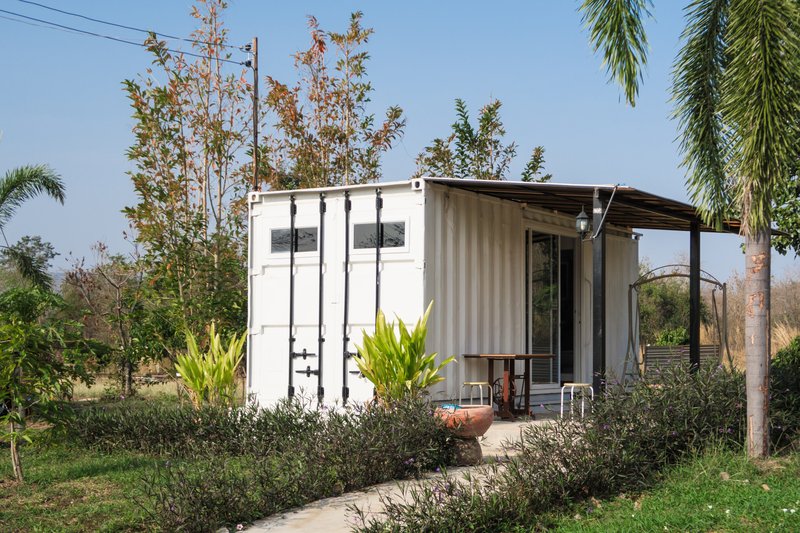Economic Gains from Recycling Appliances
Posted on 08/01/2025
Recycling appliances has gained significant attention in recent years not only for its environmental benefits but also for its substantial economic gains. This article explores the various financial advantages of recycling appliances, delving into the cost savings, job creation, and the overall economic boost it provides.
Introduction to Appliance Recycling
The modern world is characterized by the rapid evolution of technology and the corresponding obsolescence of household appliances. From refrigerators to washing machines, these appliances eventually become outdated or non-functional. Traditionally, discarded appliances were destined for landfills, posing significant environmental hazards. However, economic incentives have increasingly driven the trend towards recycling these items.

Cost Savings through Material Recovery
One of the primary economic benefits of recycling appliances lies in the recovery of valuable materials. Many household appliances contain metals such as steel, aluminum, and copper, which can be extracted and reused.
1. Reduction in Raw Material Costs: The recycling industry significantly reduces the cost associated with procuring raw materials. By reusing metals recovered from old appliances, manufacturers can lower production costs, leading to cheaper consumer products.
2. Energy Savings: Recycling materials requires considerably less energy than producing new ones from raw ores. For instance, recycling aluminum uses about 95% less energy than manufacturing it from bauxite ore. The energy savings translate into substantial cost reductions.
Job Creation and Economic Growth
The recycling industry is a major source of employment. As the demand for recycling services grows, so does the need for labor.
1. Job Opportunities: Recycling appliances involves a series of processes including collection, transportation, sorting, dismantling, and material processing. Each step in the chain offers various job opportunities. Recycling plants, in particular, employ workers for manual sorting, mechanical operation, and quality control.
2. Economic Stimulation: The proliferation of recycling centers and plants stimulates local economies. These facilities often source labor and services locally, thereby injecting money into the community and encouraging economic growth.
Reduction in Disposal Costs
The financial burden of waste disposal is significant for municipalities and taxpayers. By recycling appliances, cities can decrease the volume of waste destined for landfills, thus reducing disposal costs.
1. Landfill Fees: Municipalities charge fees for disposing of waste in landfills. Recycling reduces the total volume of waste, leading to lower landfill usage and, consequently, lower fees.
2. Transportation Costs: Transporting bulky appliances to landfills incurs substantial costs. Recycling centers are often more strategically located, closer to urban areas, and require less transportation.
Incentives and Rebates
Many governments and organizations offer financial incentives and rebates to encourage appliance recycling. These incentives can offset the cost of purchasing new, energy-efficient appliances or reward individuals and companies for their recycling efforts.
1. Tax Credits: Some governments provide tax credits to individuals and businesses that recycle appliances. These credits can reduce overall tax liability and, in turn, improve financial standings.
2. Cash Rebates: Utility companies and environmental organizations often offer cash rebates for recycling old appliances. For example, consumers may receive rebates when purchasing energy-efficient replacements and recycling their outdated models.
Boosting Technological Innovation
Recycling appliances plays a critical role in driving technological advancements and innovation. The need to efficiently recycle materials encourages research and development into better methods and technologies.
1. Innovative Recycling Techniques: The demand for more efficient recycling processes has spurred technological innovations. Advanced sorting technologies, such as AI and robotics, are being integrated into recycling plants to improve the accuracy and speed of material separation.
2. Product Design: Manufacturers are increasingly designing appliances with recyclability in mind. This involves creating products that are easier to disassemble and have components that can be more readily recycled. Such designs not only support environmental goals but also create new manufacturing opportunities.

Environmental and Economic Synergy
The interconnection between environmental sustainability and economic gains cannot be overlooked. Recycling appliances not only protects the environment but also creates a synergy that results in economic benefits.
1. Reduction in Greenhouse Gas Emissions: By recycling materials, industries can significantly reduce their carbon footprint. The reduction in energy consumption and the lower demand for raw material extraction contribute to fewer greenhouse gas emissions.
2. Resource Conservation: Recycling appliances conserves natural resources, ensuring their availability for future generations. This conservation can lead to long-term economic benefits by avoiding the depletion of finite materials and reducing the costs associated with raw material scarcity.
Conclusion
The economic gains from recycling appliances are multi-faceted and far-reaching. From cost savings in material recovery and reduced disposal expenses to job creation and technological innovation, the financial benefits are compelling. Additionally, the synergy between economic growth and environmental sustainability further underscores the importance of investing in and promoting appliance recycling initiatives.
As technology continues to advance and the global emphasis on sustainability grows, the economic advantages of recycling appliances will likely expand, offering even more opportunities for financial gain and environmental protection. Therefore, it is essential for governments, industries, and consumers to collaborate and support recycling efforts to realize these economic benefits fully.
Latest Posts
Planet-Friendly Disposal Strategies
House Waste Removal Made Easy: Top 5 Tools
Hard Rubbish: Identification & Disposal Tips





